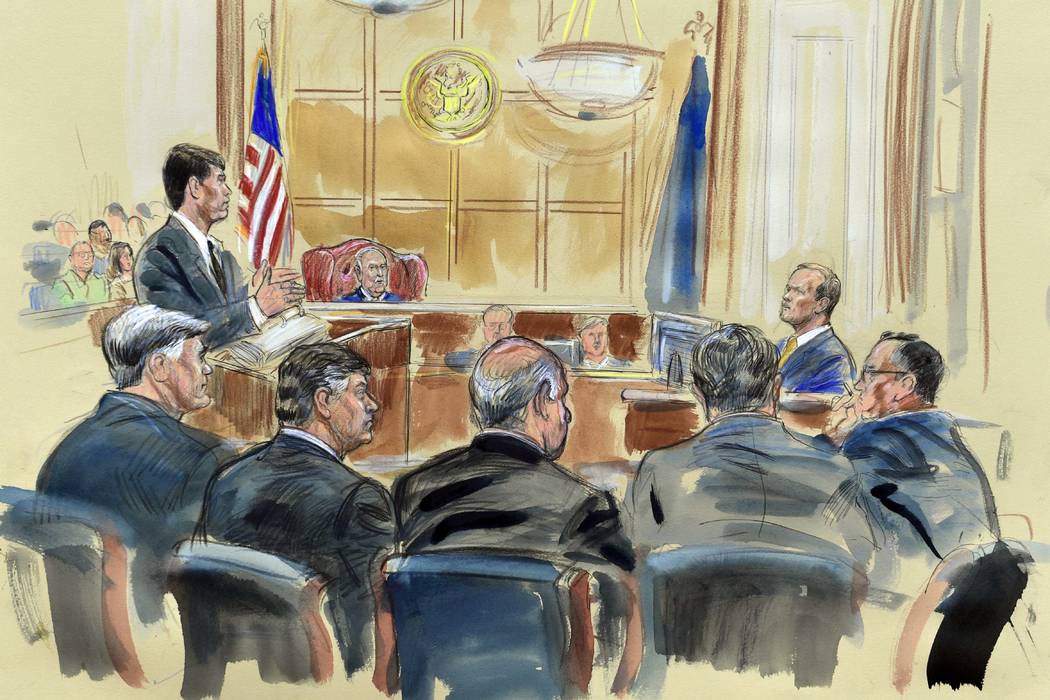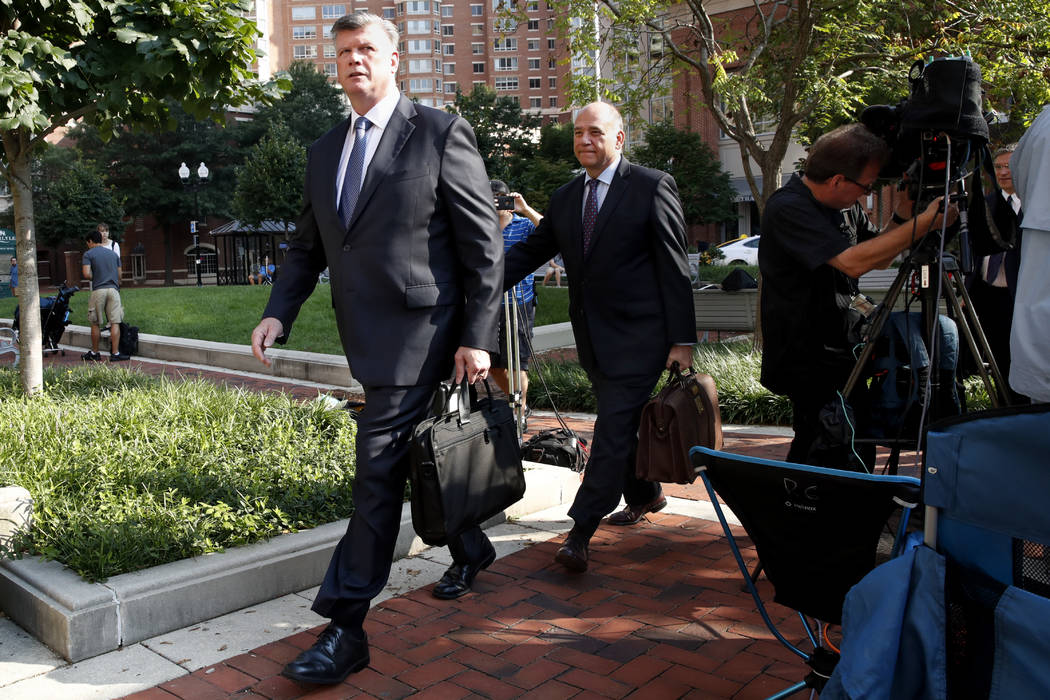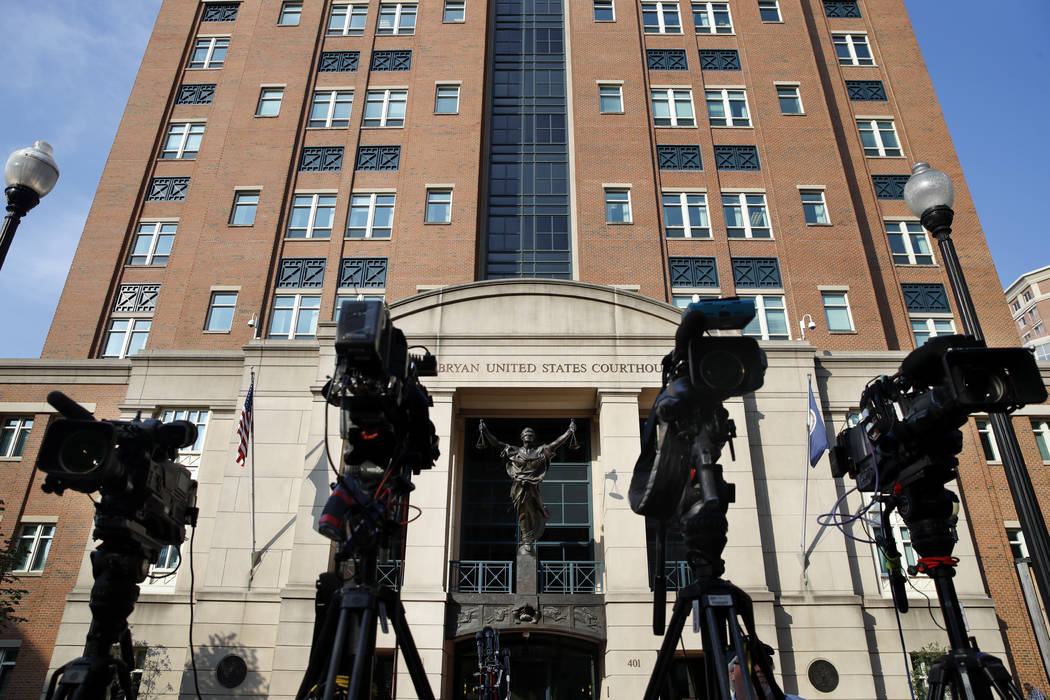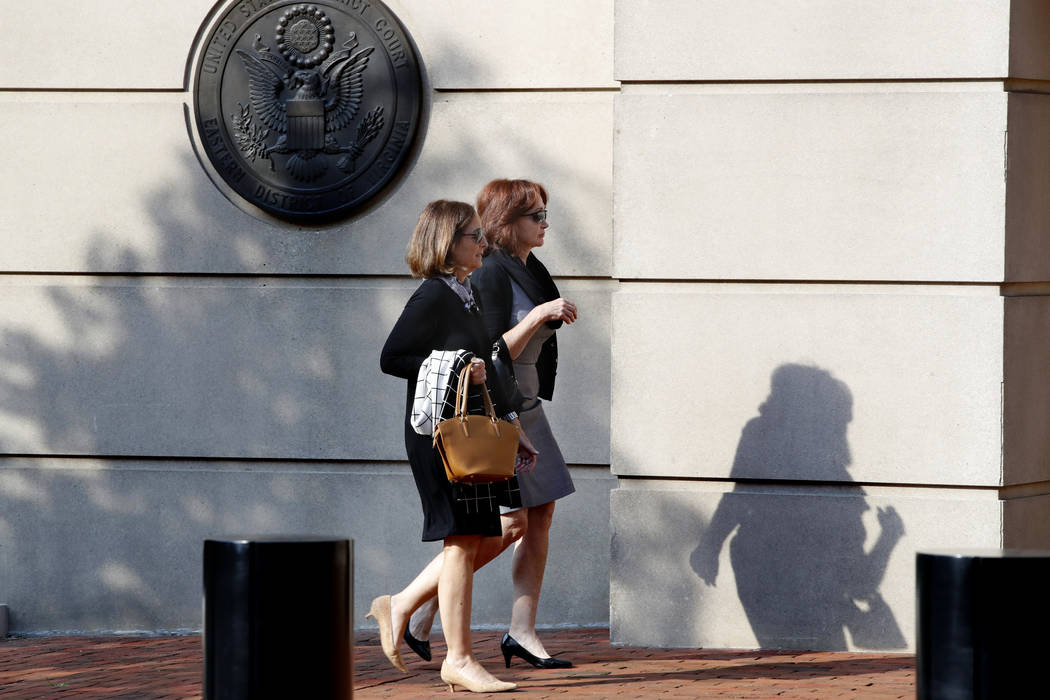Manafort’s legal team attacks credibility of prosecutors’ star witness
ALEXANDRIA, Va. — The defense attorney for former Trump campaign chairman Paul Manafort put the prosecution’s star witness, former Manafort lieutenant Rick Gates, on trial Tuesday in federal court.
Defense attorney Kevin Downing repeatedly attacked Gates’ credibility and pressed him about the lies he admitted telling.
“After all the lies you’ve told and the fraud you’ve committed, you expect this jury to believe you?” Downing asked incredulously.
Special Counsel Robert Mueller’s office indicted Gates and Manafort, who had been known for his lavish lifestyle and willingness to represent some of the globe’s shadiest leaders, in October 2017 as part of a probe into Russian interference in the 2016 election. While none of the tax and fraud charges against the two involved the 2016 election, observers speculated that Mueller’s aim was to get Manafort to flip on President Donald Trump.
Instead, Gates, 46, turned on his 69-year-old mentor. Gates pleaded guilty last spring to conspiracy and making false statements and agreed to cooperate with investigators by testifying in Manafort’s financial fraud trial.
Clean-shaven and attired in a crisp suit, Gates never seemed to make eye contact Tuesday with Manafort, who sat watching next to his legal team, as the witness tied his former associate to multiple acts of fraud involving millions of dollars.
Downing wasted little time before he suggested that Gates turned on his old boss to avoid a sentence that Gates admitted could stretch beyond 50 to 100 years if he were found guilty in court.
Downing also forced Gates to admit to a “secret life” – an affair years ago that entailed a flat in London.
“In essence I was living beyond my means. I regret it clearly. I’m taking responsibility for it,” Gates responded.
Downing berated Gates for devising a “scheme” to file phony expenses and false invoices to skim money from Manafort’s many off-shore corporations. He repeatedly questioned Gates’ credibility by suggesting Gates had siphoned as much as $3 million from Manafort, as Gates asserted that he had taken hundreds of thousands of dollars.
At one point, Gates called a six-figure payment he made to himself “unauthorized.” Downing pressed Gates to acknowledge that a more accurate term would be “embezzlement.” After a few exchanges, Gates relented.
Earlier in the day, Gates explained to prosecutor Greg Andres how Manafort and he converted income into loans to avoid federal taxes and cooked fraudulent books to win approval for large loans. At the time, Gates testified, Manafort’s firm, DMP International, had zero clients and was desperate for money.
The special counsel’s office released an email exchange in which Manafort asked Gates how he could convert a PDF document into a word document that could facilitate obtaining a loan based on false information.
In another note, Manafort wrote, “Rick, you are the quarterback. All information needs to go through you.”
U.S. District Judge T.S. Ellis has scolded prosecutors for using terms like “oligarch” to describe businessmen who bankrolled Manafort’s work for Ukraine President Viktor Yanukovuch. Ellis also discouraged prosecutors from tying the financial fraud charges against Manafort to the Trump campaign — and yet Trump’s name did pop up in documents presented as Gates endured the hot seat.
A March 2013 memo included a note about Yankee tickets not being received, followed by “Tickets going to Trump next week.”
While Manafort served as Trump’s campaign chairman for just three months, Gates remained on the Trump team and went on to serve on his inauguration team.
Andres displayed a November 2016 note in which Manafort suggested that Gates advocate that the future president pick Stephen Calk, CEO of the Federal Savings Bank of Chicago, to be his secretary of the Army. Calk’s bank loaned Manafort money in 2016. Manafort also urged Gates to invite Calk and his son to the inauguration.
At one point, Downing confronted Gates with questions about whether he submitted personal expenses to the inaugural committee. At first Gates denied the charge, before he offered it was possible.
Downing began his questioning hitting Gates for lying to the special counsel before the plea deal was reached. At first Gates denied that he misled federal prosecutors, then he admitted to lying once before he copped to instances in which he struggled.
When Downing asked Gates why jurors should believe him, the one-time Manafort aide replied, “Yes, I made a decision. I’m here to tell the truth.” Manafort was offered the same path, he said, but “I’m here.”
Contact Debra J. Saunders at dsaunders@reviewjournal.com or 202-662-7391. Follow @DebraJSaunders on Twitter.


























